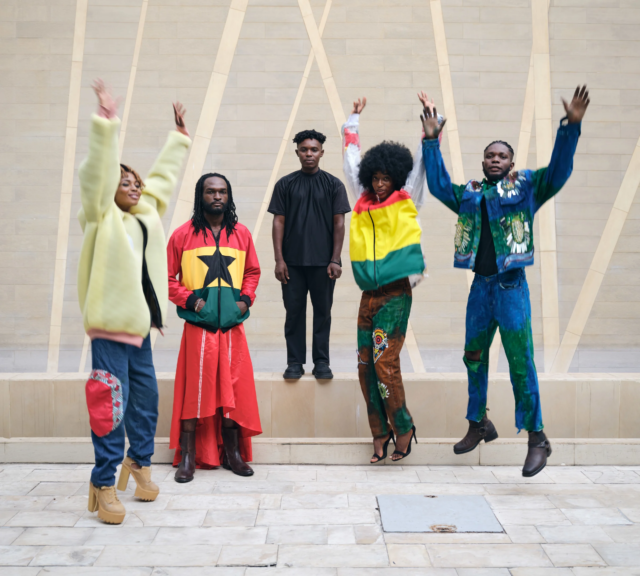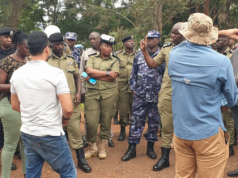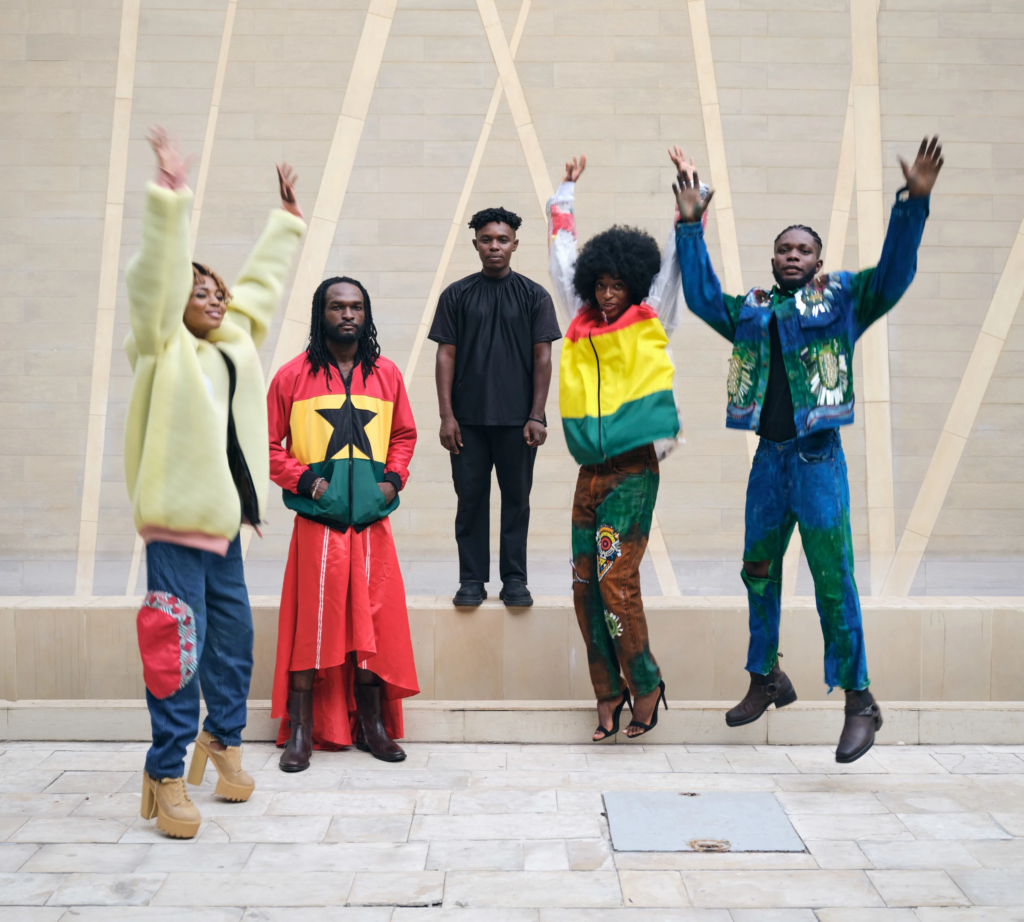
For decades, American and European fashion houses have reduced African design ideas to stereotypes. Now a wave of West African brands are asserting their identities by championing methods and materials that are woven with the designers’ own narratives. “There is a wealth of knowledge and experience that could be lost if we do not evolve,” says Nkwo Onwuka, founder of NKWO. Celebrating craftsmanship that offers a window into countries like Nigeria and Ghana, these labels are preserving age-old techniques rooted in tradition—and building a global following in the process.
Boie and Bill, Ghana
In Ghana, where millions of garments donated to charity by residents of the Global North are instead thrown into landfills, brothers Ellisha “Boie” Ofori Bamfo and Calvin “Bill” Bamfo repurpose old clothes from Kantanamamto Market in Accra. “We try to make the upcycled items as unique as possible,” says Boie of their printed shirts and contemporary jackets. Case in point: a bomber made from plastic and textile strips and splashed with the Ghanaian flag.
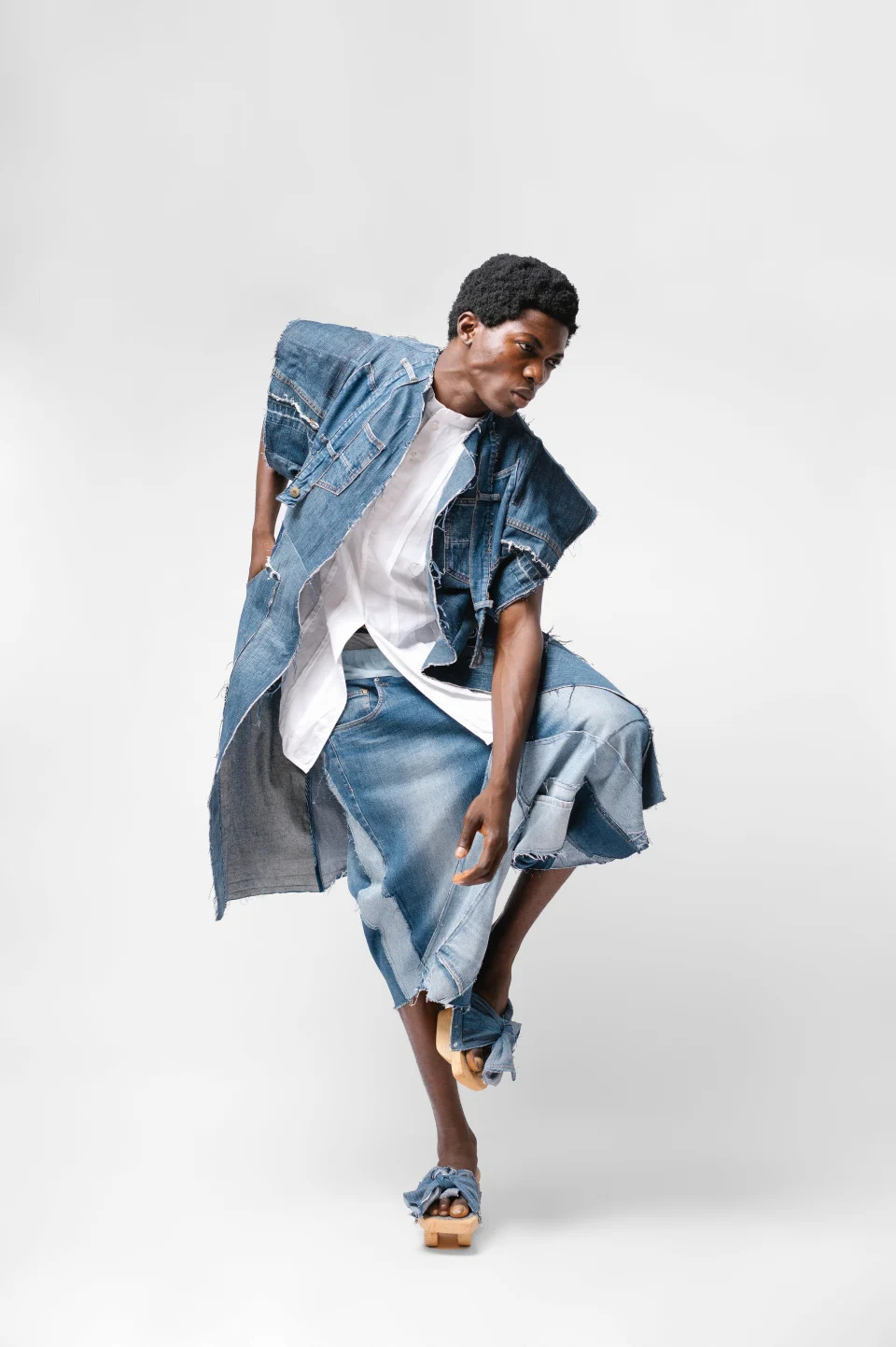
NKWO, Nigeria
In 2012, Nkwo Onwuka set out to address two major issues in Nigeria: a lack of support for artisans and an increase in textile waste. Her solution? A material called Dakala cloth, developed with artisans who weave, sew, and braid together old fabrics using a proprietary technique. NKWO Design is “an opportunity to bridge the gap between textile-waste reduction and craft-skill preservation by experimenting with waste as a resource,” says Onwuka, who works with women displaced by the insurgency in northeastern Nigeria.
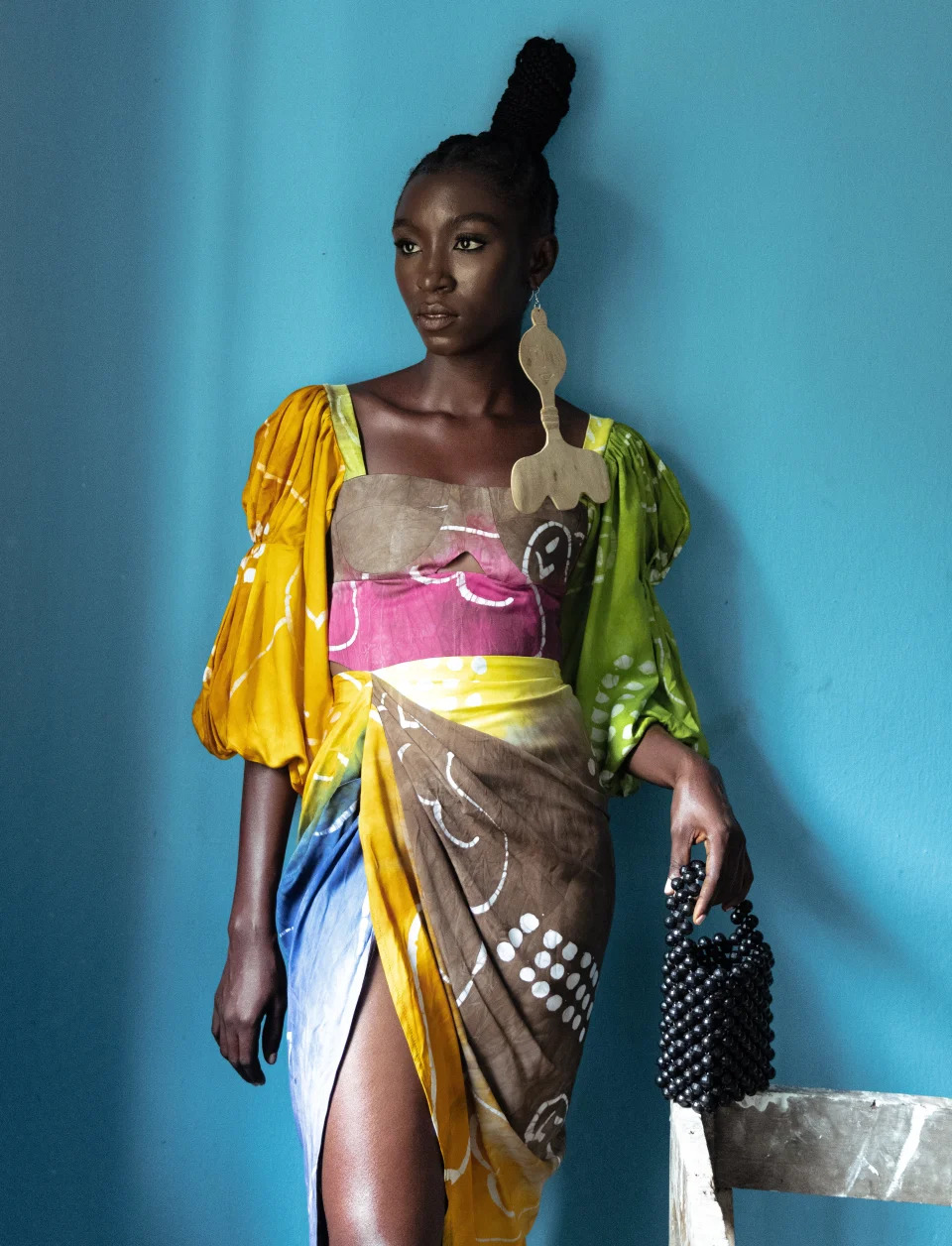
Pepper Row, Nigeria
Omafume Niemogha highlights African culture, folktales, and art through fashion, harnessing the skills of sixth-generation weavers and Yoruban woodworkers at Pepper Row. “It’s a way to share our history and story with the world,” she says. The result: an eye-catching assortment of hand-dyed dresses with puff sleeves and double-breasted suits in hot pink and orange, with buttons fashioned from hand-painted wooden figurines.


